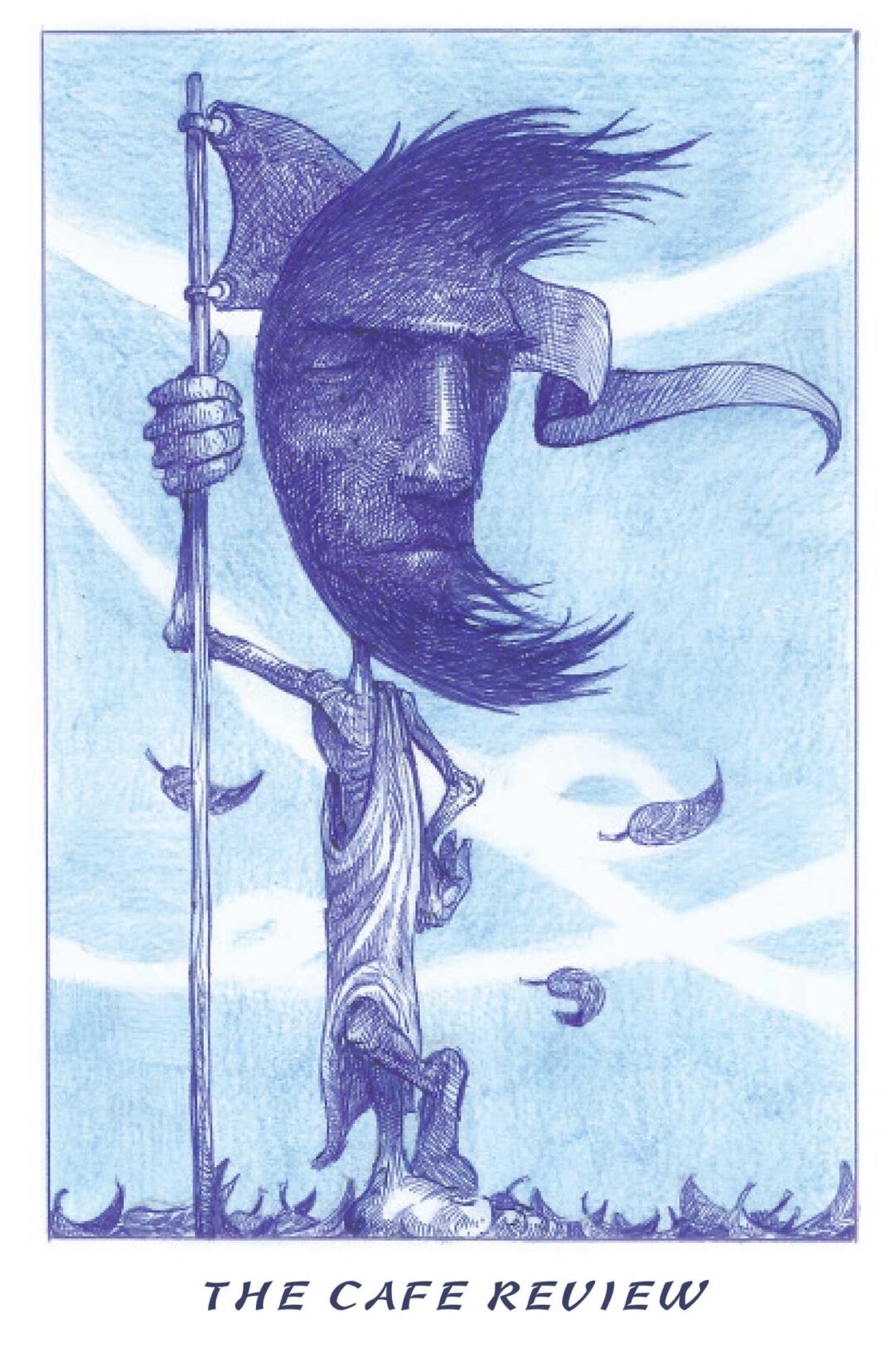Autumn Moth

By Ma Yongbo
Dark. Glass window. Flickering brown moth
with a skeleton, appears. Colder indoors
not a day we heat the house
no one has chopped firewood.
We wrap ourselves in quilts, watch TV: recount
childhood summers, catching spinning insects
under mercury–yellowish streetlights
As for moths, they are just powder, just butterflies in disguise.
It’s said they’ll burn freckles on your face
proof that combustion is granular coldness.
Are there white eggs embedded on its back?
It inserts a straw deep into the window glass, to drink the bright
light,
eyes larger than its head, blank, focused,
craving bread crusts and tattered cotton fluff.
A moment of panic as if drowsiness struck —
it will spin with the cooling planet, the years and the withered
trees,
keep spinning, when the house finally empties
like a thin cocoon, swaying on dark branches.
Rain on Start of Winter

By Ma Yongbo
The sea is grey and misty, a realm of chaos,
where sky and sea merge, rain ushering in early darkness.
The square prow rises and falls with the waves,
one cabin at the bow, lit with a lamp,
another at the stem, with a swinging hammock.
Tin lanterns weigh down tilted nautical charts,
below deck, bundles of books serve as ballast,
ropes, knives, canvas, water buckets,
an albatross drags its wings.
Perhaps there’s even the skull of an old friend,
emitting a slight shuffling sound.
The wind blows, causing the concave sails to rebound,
beating against the slightly swaying mast.
The sails at the fore and aft have merged,
a solitary lamp atop the mast replaces the lookout.
I occasionally set down my pen to listen,
or go to the deck to check the wind’s direction.
A white whale glides past the bulwark,
in the distance, a lone iron chimney rises.
The crew’s whereabouts are unknown,
perhaps they’ve joined a jungle expedition to venture inland.
Only I, from time to time, glance at the binnacle,
or pull on the capstan pulley, then return to my desk,
letting my punt drag through the dark fog,
glide, brushing past all the world’s coastlines.
Blade

By Angela Rona Estavillo
Blade
for C
Somehow I saw better like this:
eyelids heavy with your
curdled mascara, unvexed by
both his desertion and my recurrent
neoplasia. Never not armed against
the cold front, you could barely
masquerade as an islander.
So what
if I happened to take after
my namesake and appeared
to you as ophanim? You’d find a
way to faultlessly trace
my hundred waterlines,
you and your choleric precision —
teaching me that this
is how we autolyze,
engulfed by our own palilogy
and remembering
always the gratitude
for the edge.
Imperial

By Angela Rona Estavillo
Imperial
for my great–grandmother
Lola,
for over a decade I thought your name
was Peling and not Feling.
Feling, a grapheme away from feeling,
a closeness doubling as a chasm.
Even if it is too late, I know now how
to hold the parabola that turns an f into a p
and bury it in Mr. Kipling and his burden.
In my dream, this is all I have to fight the
imperial army that knew nothing of dynasty —
you, a mispronounced sovereign,
who helped raise her daughter’s son and then
his daughter using laughter as the
lingua franca. When I watch the empire fall,
I can hear the echo of your orphan folk song,
the one I hardly understand,
a balm for this totemic sorrow.


